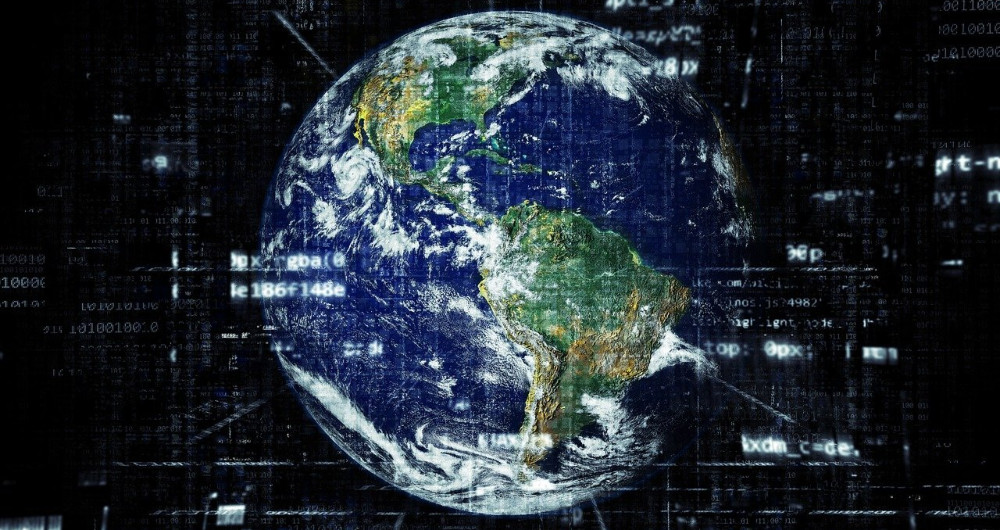
When President Trump and the First Lady announced they had contracted COVID-19, I was saddened by the immediate surge of skepticism on social media. He lies all the time. How do we know this is true? Another: He’s probably just trying to get out of more debates.
Saddened, but wholly unsurprised. Internet media affords everyone the chance to live in their own belief bubble, and it’s time we enacted structural reforms to help reimpose reality.
Meltdown day – the day when nobody trusts any source, and nobody believes anything that challenges their preconceptions – may not be here quite yet. But speaking as a 25-year veteran of internet politics and marketing, and one who just published a book on these alarming developments in digital disinformation, I think meltdown is plausibly close. To paraphrase Sarah Palin, I can see chaos from my house.
In 2016, say P.W. Singer and Emerson T. Brooking in Like War: The Weaponization of Social Media, fake news received more engagement on Facebook than the top stories from all the major traditional news outlets combined. In 2020 social media use is up, especially with so many sheltering at home to dodge the coronavirus, and the disinformation problem is “far, far worse in terms of quantity,” says Steven Brill, CEO of NewsGuard, a browser extension intended to flag fake stuff.
Russia clearly owns some of the online mayhem. But blaming the Kremlin for everything is too pat by half. We generate mountains of home-grown falsities. With no proof, the Trump reelection campaign has for months associated vote-by-mail systems with chronic fraud and exhorted Americans, baselessly, to distrust their electoral framework. A summer of social unrest in Portland was entirely the fault of either right-wing vigilantes or left-wing Antifa cells, depending what news source had your ear.
And it’s not only Russia and partisan domestic tribes weaponizing the web. Other international players are on the field. Samantha Hoffman of the Australian Strategy Policy Institute has detailed how the Chinese surveillance state uses outwardly benign social apps like TikTok to amass giant data sets revealing human behavior patterns and trends, which assists the Communist Party’s intelligence and propaganda efforts.
Small wonder that in late 2020 news of Donald Trump’s infection with COVID-19, the sort of seismic political bulletin that once elicited common national shock, elicited cynical disbelief in many of the internet’s nooks and crannies. When President Reagan was shot in 1981, Americans had diverse reactions to the crime, but they didn’t dispute that it actually happened.
And if the digital political landscape in this disorienting, dispiriting year gives you the creeps, imagine where we’re headed if hackable digital tech, unmanaged media, and microtargeted marketing rampage on without brakes or scruples.
Consider how ever-more-robust artificial intelligence and machine learning – the same technologies behind today’s chats with Siri, Alexa, or Amazon Echo – could evolve to make today’s stressful information environment downright intolerable. Imagine how they might use your personal data, bought and sold by scads of private interests, to invade every corner of your life via smart devices.
Holograms, deepfakes, political candidates calling you by name from gas-pump screens or your bathroom mirror as you wash your hair, referring offhandedly to your Netflix queue or favorite cheeses from Whole Foods – it’s all imminently possible. And if recipients can’t tell who’s behind such ubiquitous, rich – but suspect and invasive – content, the trauma will make 2020 look like a peaceful stroll in a sun-kissed meadow.
Knit these new technologies with agenda-driven politics, and the result looks like an unprecedented, disruptive form of societal chaos. Not to mention an inducement to quit politics, leaving our system in the hands of elites and grudge-nursers.
Operators of our pervasive digital platforms – Facebook and Twitter chief among them – have long disclaimed responsibility for editing or verifying the content they deliver. They work like UPS, they say; they cannot be expected to know what’s in every box on the truck. But if your favorite package delivery service were trucking suitcase nukes down your street, you might want to stop the driver. And that’s the situation we’re in now with internet powers delivering dirty, harmful disinformation to our phones, watches, and, soon, smart bathroom mirrors. Responsibility is overdue. Change is imperative.
If 2020 leaves us no other silver lining, let it be the year we resolved to reform the digital infosphere. We give social media providers a pass when it comes to owning the divisive material they profit from; that should end. We have no quality or privacy benchmarks for the top-secret algorithms internet powers employ to build your newsfeed and stack-rank your online friends; that should end. In earlier times we founded the Interstate Commerce Commission and the Federal Communications Commission to make sure new, disruptive technologies – railroads and radio, in those cases – worked in the peoples’ interests. We have no such agency to keep the internet answerable to the people; it’s time.
The integrity of our elections, the tenor of our national conversation, and our common perceptions of what’s real all depend on it. Let’s not reach 2024 without forthright action to apply more oversight to Big Tech. The clock is Tik-Toking.

What worries me at least as much as the corrosive power of social media to spread disinformation to reinforce tribal bubbles is how rapidly social media’s tribalized rewriting of reality is bleeding over into mainstream journalism. I used to think the New York Times was stuffy and boring in its framing of the news, but credible. Now I think it’s much more vivid and colorful, but often wildly off in its takes (remember when it was inevitable that Liz Warren was going to be the Democratic nominee?).